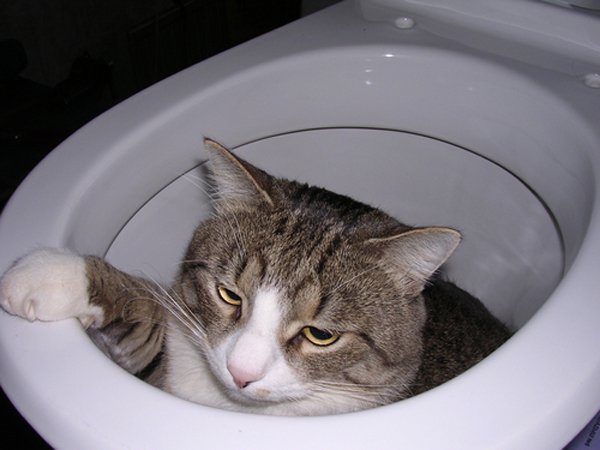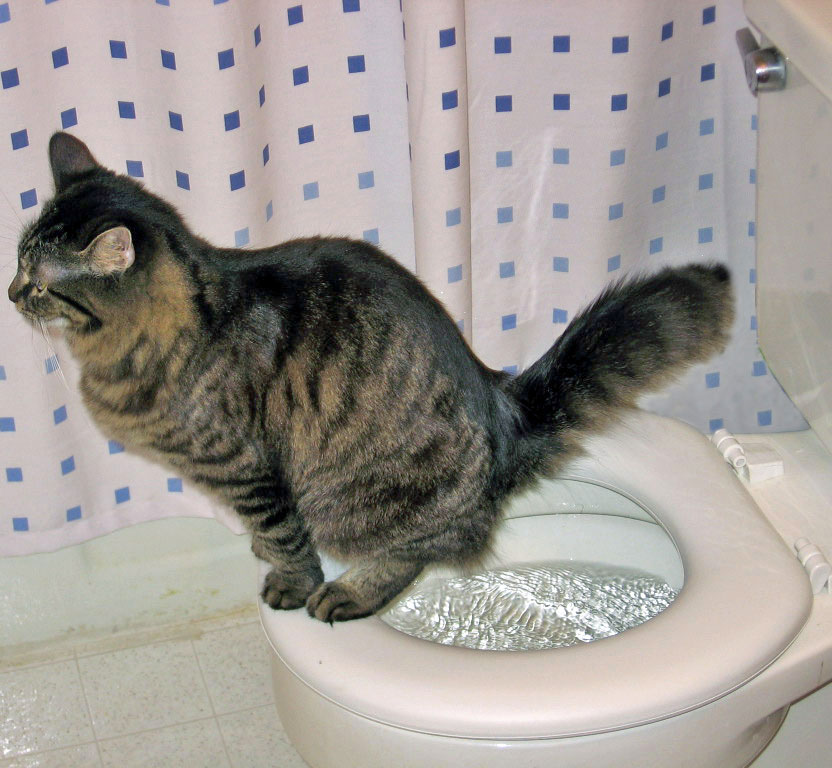Avoid Bathroom Disasters: Don't Flush Cat Poop Down Your Toilet - Professional Guidance
Avoid Bathroom Disasters: Don't Flush Cat Poop Down Your Toilet - Professional Guidance
Blog Article
Everyone may have their own unique thinking in relation to Can You Flush Cat Poo or Litter Down the Toilet?.

Intro
As feline proprietors, it's vital to bear in mind just how we throw away our feline good friends' waste. While it might seem hassle-free to flush pet cat poop down the commode, this method can have damaging consequences for both the setting and human wellness.
Alternatives to Flushing
Thankfully, there are safer and a lot more liable methods to get rid of cat poop. Take into consideration the complying with choices:
1. Scoop and Dispose in Trash
The most usual technique of getting rid of cat poop is to scoop it into a biodegradable bag and toss it in the trash. Make sure to use a committed litter inside story and take care of the waste quickly.
2. Usage Biodegradable Litter
Select biodegradable pet cat trash made from products such as corn or wheat. These trashes are eco-friendly and can be safely gotten rid of in the garbage.
3. Bury in the Yard
If you have a yard, think about burying feline waste in a designated area far from vegetable yards and water resources. Be sure to dig deep adequate to prevent contamination of groundwater.
4. Set Up a Pet Waste Disposal System
Invest in a family pet garbage disposal system specifically created for cat waste. These systems use enzymes to break down the waste, lowering odor and environmental impact.
Health and wellness Risks
Along with environmental concerns, purging pet cat waste can additionally posture wellness risks to human beings. Pet cat feces might contain Toxoplasma gondii, a parasite that can trigger toxoplasmosis-- a possibly extreme ailment, specifically for expectant ladies and people with damaged body immune systems.
Environmental Impact
Flushing cat poop introduces harmful pathogens and bloodsuckers into the supply of water, presenting a substantial risk to water communities. These pollutants can negatively affect marine life and compromise water quality.
Final thought
Liable pet ownership extends beyond providing food and shelter-- it also involves appropriate waste management. By avoiding purging feline poop down the commode and selecting alternative disposal techniques, we can lessen our ecological footprint and secure human wellness.
Why Can’t I Flush Cat Poop?
It Spreads a Parasite
Cats are frequently infected with a parasite called toxoplasma gondii. The parasite causes an infection called toxoplasmosis. It is usually harmless to cats. The parasite only uses cat poop as a host for its eggs. Otherwise, the cat’s immune system usually keeps the infection at low enough levels to maintain its own health. But it does not stop the develop of eggs. These eggs are tiny and surprisingly tough. They may survive for a year before they begin to grow. But that’s the problem.
Our wastewater system is not designed to deal with toxoplasmosis eggs. Instead, most eggs will flush from your toilet into sewers and wastewater management plants. After the sewage is treated for many other harmful things in it, it is typically released into local rivers, lakes, or oceans. Here, the toxoplasmosis eggs can find new hosts, including starfish, crabs, otters, and many other wildlife. For many, this is a significant risk to their health. Toxoplasmosis can also end up infecting water sources that are important for agriculture, which means our deer, pigs, and sheep can get infected too.
Is There Risk to Humans?
There can be a risk to human life from flushing cat poop down the toilet. If you do so, the parasites from your cat’s poop can end up in shellfish, game animals, or livestock. If this meat is then served raw or undercooked, the people who eat it can get sick.
In fact, according to the CDC, 40 million people in the United States are infected with toxoplasma gondii. They get it from exposure to infected seafood, or from some kind of cat poop contamination, like drinking from a stream that is contaminated or touching anything that has come into contact with cat poop. That includes just cleaning a cat litter box.
Most people who get infected with these parasites will not develop any symptoms. However, for pregnant women or for those with compromised immune systems, the parasite can cause severe health problems.
How to Handle Cat Poop
The best way to handle cat poop is actually to clean the box more often. The eggs that the parasite sheds will not become active until one to five days after the cat poops. That means that if you clean daily, you’re much less likely to come into direct contact with infectious eggs.
That said, always dispose of cat poop in the garbage and not down the toilet. Wash your hands before and after you clean the litter box, and bring the bag of poop right outside to your garbage bins.
https://trenchlesssolutionsusa.com/why-cant-i-flush-cat-poop/

I was guided to that article about Don’t flush cat feces down the toilet through a friend on our other web page. Sharing is caring. Helping people is fun. We love reading our article about Don’t flush cat feces down the toilet.
Free Estimate Report this page